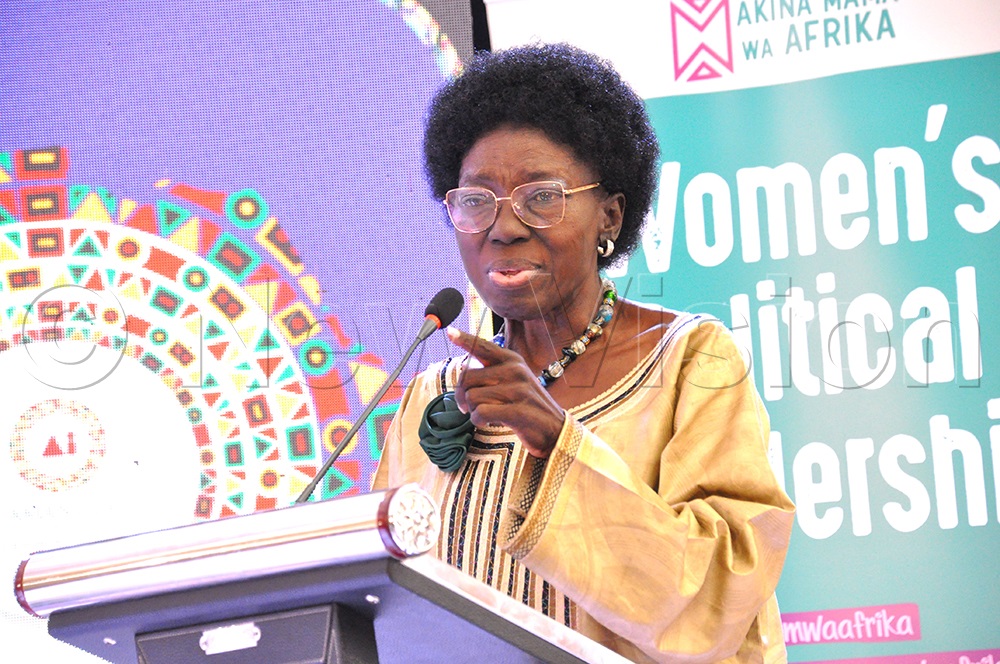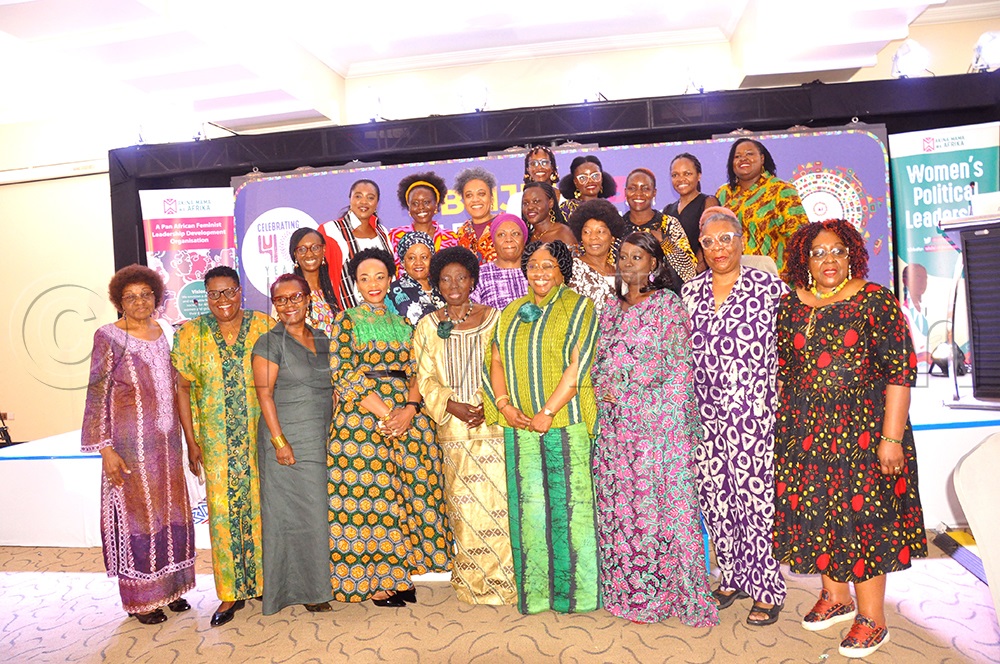Matembe commends President Museveni for promoting gender parity
Matembe, a prominent Ugandan politician and women’s rights activist, has been one of the biggest critics of President Museveni’s leadership, arguing that he betrayed the very principles of democracy, freedom, and justice that he and his comrades claimed to fight for during the 1980 – 1986 bush war.
Miria Matembe addressing participants during the Beijing+30 high level bold dialogue at Mestil Hotel on October 24, 2025. (Photo by Nancy Nanyonga)
________________
Miria Matembe, the former minister of Ethics and Integrity, has commended President Yoweri Kaguta Museveni for promoting gender parity.
Matembe, a prominent Ugandan politician and women’s rights activist, has been one of the biggest critics of President Museveni’s leadership, arguing that he betrayed the very principles of democracy, freedom, and justice that he and his comrades claimed to fight for during the 1980 – 1986 bush war.
However, this time she chose to hail President Museveni for his role in promoting women’s rights.
She made remarks on Friday at Mestil Hotel, at the commemoration of 30 years of the Beijing conference that marked the birth of women's emancipation across the world.
“In Uganda, as we mark Beijing, we go back ten years before Beijing, 1986, when the National Resistance Movement (NRM) government came to power. It came with a woman's question high up on the agenda and opened up space for the women to enter politics,” she said.
The Beijing Conference, formally known as the Fourth World Conference on Women, was a landmark global event held in Beijing, China, in September 1995. It was organised by the United Nations and brought together representatives from 189 countries, including government officials, activists, and organisations working on women’s rights and gender equality.
The main outcome of the conference was the adoption of the Beijing Declaration and Platform for Action, which remains one of the most important international blueprints for advancing women’s rights worldwide.
Matembe noted that the NRM government set up a conducive environment for women’s equal participation in public life (politics). She said the majority were dying to have their voices out and be heard.
“Without any doubt I can say that if the Nationalist Movement government had not come to take over, putting the women's question high up on the agenda, we wouldn't be where we are today. Because the previous governments were so violent, there was no peace, and no woman can participate effectively in an environment that is not peaceful. And so, for me, I always give credit to President Museveni, because what he did was great for us,” she said.
Rebecca Alitwala Kadaga, the first deputy prime minister and a former speaker of the 10th parliament, the guest speaker for the day, said that from the time the government took over power, the rights of women have been fully promoted.
Rebecca Kadaga, Deputy Prime Minister for East African Affairs, addressing participants during the Beijing+30 high level bold dialogue at Mestil Hotel on October 24, 2025. (Photo by Nancy Nanyonga)
Accordingly, before the Beijing conference, Uganda had fewer than 10 judges; 30 years later, the number of women judges has increased.
“Things have changed; we have not yet succeeded in getting a woman chief justice, but anyway, one of these days...” followed by laughs with the crowd. “We stand now as 14 cabinet ministers and 24 ministers of state; that’s 14%, which is an improvement,” she said.
In August, Uganda had its first-ever principal judge, Justice Jane Francis Abodo, appointed by President Museveni. Kadaga said this is a great milestone and an indicator that women are now more valued compared to the past.
In education, she said that more women are graduating compared to men, signifying that women’s rights are getting promoted. In 1989, local councils were reserved for only men; however, all that changed, and women began taking such positions.
“In the village where we had a committee of nine, in the beginning, there was supposed to be a lady on the committee. In many places, women could say, “No, let a man sit in this position”; they didn’t think it was their business to manage a village, a committee, or any affairs, but today we have many ladies in the councils and chairpersons in sub-counties, so things have changed,” she said.
With big positions, no influence
Matembe said compared to their time when they were in parliament, their voices would be heard and changes made; however, women of today have positions but are handicapped from making influential decisions.
“Now, politics has become a self-embodiment job, where you go in to earn money, where you go in to eat. And therefore, that's why you see that the women, although they have increased in number, are not as effective as we were,” she said.
“Yes, the numbers are there, but what is the impact? That is one big challenge. Because politics has become a self-centred thing, we want power to enjoy ourselves; therefore, for us, we are people-driven, we are people-centred, fighting to get women to get better,” she said.
She said the current women in big positions have not fully spoken about the defilement of the young girls, the violence, which is increasing every day.
“You ask, where are these people? Because they are in power without power. They are on the table without being at the table,” Matembe said.
Salome Nakaweesi, a pan-African feminist and a former executive director of Akina Mama wa Afrika, said there is a need to boost the laws that seem to be weak. Especially the laws that protect the girl child are being taken advantage of, and the culprits are left unpunished.

(Photo by Nancy Nanyonga)
She added that the political commitment in the country should be renewed again. Compared to the past, women in politics have increased, but their influence still remains unseen.